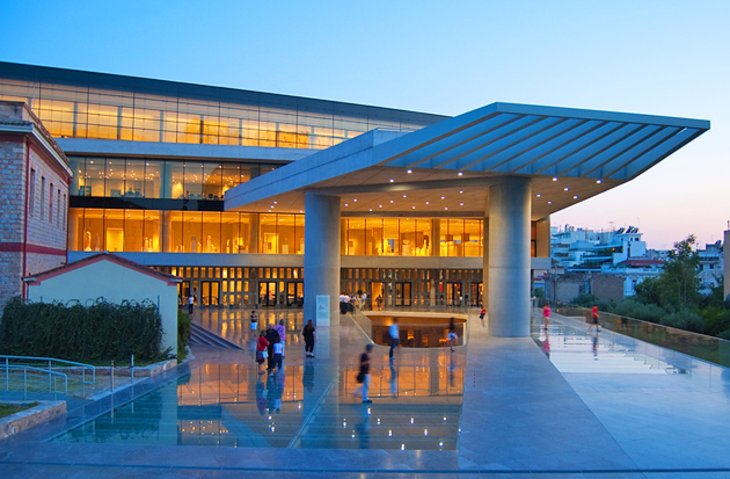Venue & Hospitality
Welcome to the official venue for the 26th Global Nursing and Health Care Conference scheduled on July 01-02, 2020 at Athens, Greece. Accommodations will be provided at the conference venue.
We often set up conferences Athens, Greece and we have collaborations with so many hoteliers there. Our Venue & Logistics team is in communication with the best properties (Hotels) and we will update the final venue information soon.
Note: For Package registrants of the Conference will be offered single (default option) or double rooms in the conference hotel itself.
For security purposes, the conference has a policy for issuing official Visa Support Letters as follows:
- Visa Support Letters will be issued only after you have successfully registered and paid for your conference.
- Visa Support Letters can only be issued for the person accepted to attend the conference.
- Visa Support Letters will be issued via email in PDF format. Please contact the Conference Manager at [email protected] to arrange for a Visa Support Letter.
- You must include your name as appears on your passport, your passport Scan Copy and abstract acceptance letter for presenters.
Whatsapp me @ +442039363178
Conference Dates: July 01-02, 2020
Hotel Services & Amenities
- Audio/Visual Equipment Rental.
- Business Center.
- Business Phone Service.
- Complimentary Printing Service.
- Express Mail.
- Fax.
- Meeting Rooms.
- Office Rental.
- Photo Copying Service.
- Secretarial Service.
- Telex.
- Typewriter.
- Video Conference.
- Video Messaging.
- Video Phone.
- ATM.
- Baggage Storage.
Transportation
Driving Directions to
Route Map
About City
About Athens
Athens is the historical capital of Europe, with a long history, dating from the first settlement in the Neolithic age. In the 5th Century BC (the “Golden Age of Pericles”) – the culmination of Athens’ long, fascinating history – the city’s values and civilization acquired a universal significance. Over the years, a multitude of conquerors occupied Athens, and erected unique, splendid monuments - a rare historical palimpsest. In 1834, it became the capital of the modern Greek state and in two centuries since it has become an attractive modern metropolis with unrivalled charm.
A large part of the town’s historic centre has been converted into a 3-kilometre pedestrian zone (the largest in Europe), leading to the major archaeological sites (“archaeological park”), reconstructing – to a large degree – the ancient landscape.
Acropolis Views
The magnificent Acropolis, visible from almost every part of the city, is the hub around which Athens still revolves. This temple city, built in the 5th century BC, serves as a daily reminder to Greeks of their heritage and the city's many transformations. All over the urban basin, rooftops and balconies angle toward the landmark, a block of milky marble atop a steep-sided hill. Pull up your own chair, settle in and allow time to appreciate the Acropolis' many moods, as the light shifts and the clouds cast their shifting shadows.
Layers of History
The cultural and social life of Athens plays out amid, around and in landmarks that are centuries old, if not millennia. The remnants of Ancient Greece get the most attention, of course, thanks to a little thing called democracy. Oh, and mythology, and drama, and philosophy. But don't overlook the 'later' years: thousand-year-old Byzantine churches, for instance, which squat, unruffled in the middle of streets and attached to hillsides. Ottoman traces can be seen in architecture and in food. And the neoclassical style of the 19th century adds elegance all over the centre.
Creative Energy
Although Athenians have endured difficult circumstances since the start of the economic crisis in 2009, the city as a whole crackles with energy in art shows, political debates and even on the walls of derelict buildings, as Athens has become one of Europe's most noted spots for street art. Creative surprises lie around nearly every corner, so be sure to leave room in your schedule for spontaneous discovery: buy a ticket to that dance show that's just starting as you walk by, or sit down at the restaurant where the musicians are setting up. You'll be rewarded.
Beaches and Ruins
Beyond Athens, down the Attica peninsula, are more spectacular antiquities, such as the Temple of Poseidon at Sounion and the site of Ancient Eleusis, as well as very good beaches, such as those near historical Marathon. Sure, you could zip across, west to east, in less than an hour, but it's far more fun to take a leisurely road trip to a thermally heated lake, say, or a monastery with dazzling Byzantine mosaics. If you'd rather not drive, most of these surprise sights (including great beaches) cn be reached on public transport.

